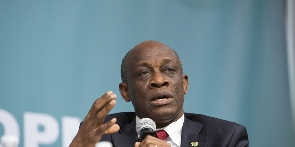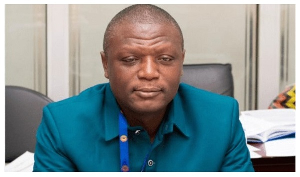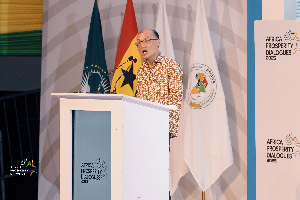Former Finance Minister, Seth Terkper, has said the Agyapa Royalties agreement shows that the government is seeking to implement another unconventional borrowing strategy that will further worsen Ghana’s debt profile.
According to him, the controversial deal is part of the many unconventional methods that the current government has been pursuing since it came into power and which are causing Ghana to slip into a high-risk debt distress country.
These views were contained in Mr Terkper’s article on the deal.
The Agyapa Royalties deal, according to government, is part of the current government’s strategy to beat the long-standing problem of lack of capital for developmental projects.
Critics have said it is not transparent and the revenue government expects from the deal will short change the state by at least $2 billion.
The former Finance Minister, who is currently the Lead Partner for tax firm PFM Tax Africa, revealed in his article that as at June 30, 2020, and based on the most recently published data from the International Monetary Fund (IMF), 8 countries are in debt distress, 28 countries are at high risk, 23 countries are at moderate risk, and 14 countries are at low risk of debt distress.
Per the data, Ghana is among the 28 high-risk debt distress countries.
According to a report by norvanreports.com, as recent estimates suggest that economic growth in Africa is likely to fall from 3.2% to 1.8% in 2020 as a result of the Coronavirus pandemic, the revenue of Ghana is also likely to decline, making the risk of debt distress even greater in the coming year.

According to Mr Terkper, the government has been using these unconventional borrowing methods in the last two years or more, with the Agyapa Royalties being the newest method being used as they run out of borrowing options at a time when it has become difficult to access the debt market for funds with potentially high-interest rates.
The use of these methods, Mr Terkper said in the article confirms the high levels of the budget deficit and public debt, making it difficult for the government to continue using acceptable instruments or methods in borrowing from the domestic and foreign markets.
The former Finance Minister is of the view that the urgency surrounding the Agyapa Royalties deal, may be from the pressure to finance the budget deficit projected to hit between approximately 11 to 13 per cent, by the end of the year.
“It seems obvious, after nearly US$5 billion of conventional loans that have increased the debt stock (excluding the BOG financing that is also deemed unconventional), that the urgency surrounding the Agyapa deal may be from the pressure to finance the budget. The fiscal deficit, borrowing, and debt trends, among others in the financial market indicators, are worrying,” – an excerpt of his article said.
Mr Terkper states that Ghana’s budget deficit and public debt is projected to be between 11 to 13 and 70 to 73 per cent respectively by the end of December 2020.
“Our own checks show that the IMF and the World Bank found in 2019 that, 43 low-income countries were either experiencing or at a high risk of experiencing, debt-related distress – a little over double the number in 2013,” according to the report by norvanreports.com.
Debt distress is when a country has experienced difficulties in servicing its debt or is extremely close to doing so, which means a government that has missed a repayment or is in the process of debt restructuring.
Those at high risk are generally countries where the external debt burden is large enough to cause concern among its citizens and economic committee.
That can mean falling into crisis if there are large capital outflows, currency devaluations or a fall in export earnings, all of which look likely for low-income countries in 2020.
Business News of Monday, 7 September 2020
Source: www.ghanaweb.com

















